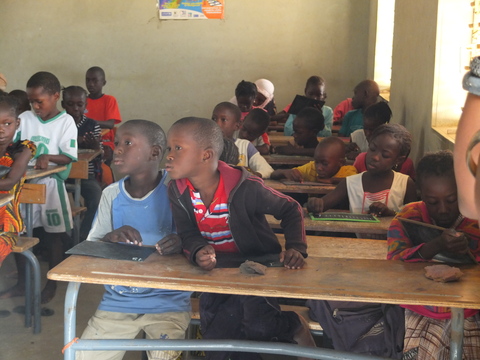Millions still denied the right to education
Conflict is a debilitating barrier to the right to education and can exacerbate pre-existing marginalisation in society
December 10, 2014
By GCE
 On 10th December 1948, the UN General Assembly adopted the Universal Declaration of Human Rights (UDHR), which laid out fundamental human rights in a single document for the first time. People around the world honour this historic milestone every year on December 10th, by celebrating Human Rights Day. This year, celebrations took place in Oslo, as two education campaigners Malala Yousafzai and Kailash Satyarthi are awarded the Nobel Peace Prize in recognition of their ceaseless work to enable citizens to access their right to education. However, almost a billion adults and children continue to be denied this right.
On 10th December 1948, the UN General Assembly adopted the Universal Declaration of Human Rights (UDHR), which laid out fundamental human rights in a single document for the first time. People around the world honour this historic milestone every year on December 10th, by celebrating Human Rights Day. This year, celebrations took place in Oslo, as two education campaigners Malala Yousafzai and Kailash Satyarthi are awarded the Nobel Peace Prize in recognition of their ceaseless work to enable citizens to access their right to education. However, almost a billion adults and children continue to be denied this right.
Conflict is a debilitating barrier to the right to education and can exacerbate pre-existing marginalisation in society. Violent or protracted crises in Iraq, South Sudan, Palestine, Syria, Ukraine, Somalia, the Central African Republic, Afghanistan, the Democratic Republic of the Congo, Nigeria, Pakistan, Somalia, and Yemen are preventing many millions of children from learning. Almost 30 million children around the world are not in school in areas affected by conflict or emergency – that’s half of all out-of-school children.
Thousands of schools are out of service, either because they've been destroyed, or are being used by the military or to house those displaced by the conflict, and millions of refugee and internally displaced children are struggling to access quality education.
Alarmingly, attacks on education are increasing – and not just in situations of armed conflict and emergency. Attacks on school infrastructure, teachers and students are reported globally. On October 1st alone, students and teachers were killed in separate attacks in schools in Syria, Pakistan and Ukraine, and earlier in the year, the abduction of 276 Chibok schoolgirls in Nigeria caused international outrage. As was the case with the horrific shooting of Malala Yousafzai, many of these attacks are intended to prevent the spread of education. However, despite widespread global protests, the families of the missing girls are still waiting for their children to be returned, children and teachers are still being killed, and the world is still waiting for justice.
Schools must be a place of safety for all children, wherever they are. One of the key findings of a report on children’s rights in Syria this year was that although every child they spoke to expressed their right to education as a main concern, “no child identified school as a safe place”. This is a flagrant violation of basic human rights, and of States’ obligation under international law to protect the rights of children. UNICEF Executive Director Anthony Lake has called 2014 a ‘devastating’ year for millions of children, and notes the irony of the timing of such tragic violations.
“It is sadly ironic that in this, the 25th anniversary year of the Convention on the Rights of the Child when we have been able to celebrate so much progress for children globally, the rights of so many millions of other children have been so brutally violated. The world can and must do more to make 2015 a much better year for every child.”
The right to education is a right for all – yet globally 781 million adults are still unable to read or write. Attacks on adults in education are also rife, with the murder of 40 college students in Nigeria by Boko Haram in late 2013 and the forced disappearance of 43 trainee teachers in Mexico in 2014.
Education has the power to underpin transformative change, providing opportunity, hope and protection to the lives of hundreds of millions of people worldwide. The right to quality education is fundamental to the realisation of other rights, including gender equality, health, nutrition, peace, the strengthening of democracy and environmental sustainability. On Human Rights Day 2014, we call for governments to take action to prevent violent attacks on education, and for the right to education to be at the heart of the new global development frameworks.